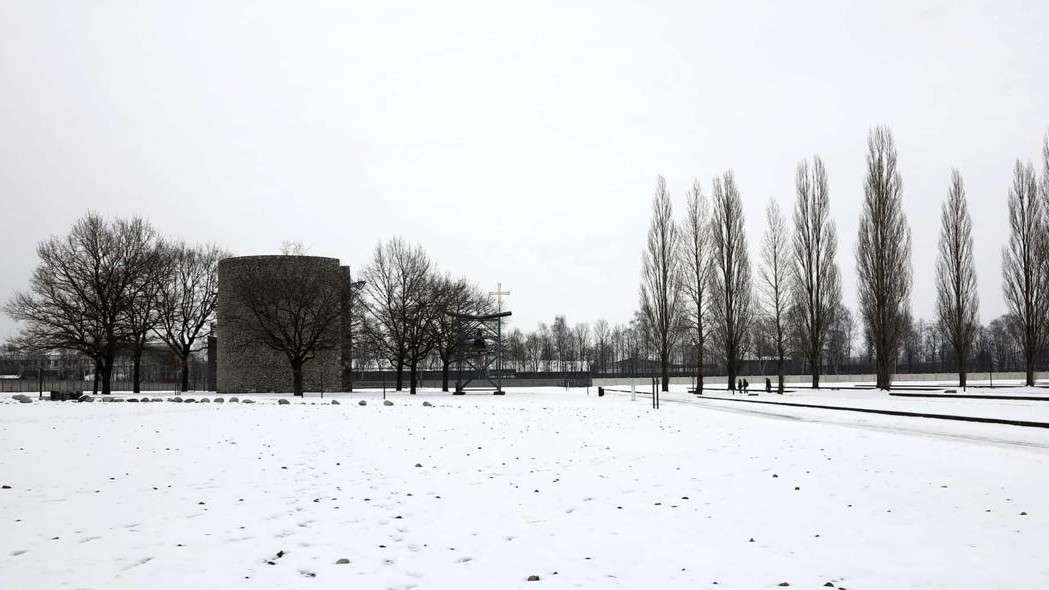
Susan Narjala
Keeping it Real

Holocaust Remembrance Reminds Us To Act
January 27th is commemorated as Holocaust Remembrance Day. This post – which first appeared on Relevant Magazine’s site – is in honor of that time in history which we can never afford to forget.
When I get to Dachau (pronounced Dak-ow), the temperature is a frigid 32 degrees Fahrenheit. I grab my camera, map and audio guide and hurriedly bundle up in layers. But nothing can quite prepare me for what I’m about to witness. It’s a bleak winter afternoon and the tourist crowds have thinned.
Once meant to serve as a “model” concentration camp, Dachau witnessed the barbaric murder of 41,500 prisoners. I remember the unspeakable crimes and realize I’m standing on hallowed ground.
Affixed to the gate are the words, “Arbeit macht frei” – a German phrase meaning “work sets you free.” From the minute the prisoners entered the gates, a death sentence awaited them. A death of dignity, humanity, and anything remotely sacred.
Facing our history
The gravel crunches beneath my shoes, lined by two pairs of socks. I’m standing in what was the roll call area. Twice a day prisoners stood there in attention, ordered to stay motionless even if one of their own fell to the ground lifeless. I can almost hear the marching and the counting of prisoners as they arrived one by one, hour upon hour, even in the most punishing winters. The first prisoners were political opponents of the regime. But in a few months, the place was crammed beyond capacity with anyone who didn’t quite fit the Nazi idea of what was deemed “right.” Thousands of Jews, homosexuals, gypsies, Jehovah’s Witnesses, priests and prisoners of war from other parts of Europe filled the 34 barracks. Meant to hold 6,000 prisoners, the barracks were packed with 30,000 men – a Petri dish for diseases like typhus and lice infestations.
I enter the maintenance building, now a museum that captures the gut-wrenching history of the camp. When new prisoners entered the maintenance building, the degrading registration process began. They were stripped of their possessions, their clothes, their identities, and their dignity. Their entire bodies were shaved and they were subject to icy cold public showers before being issued the threadbare zebra-striped uniforms. As part of their humiliation, uniforms were intentionally too small or too large for the prisoner.
The museum’s display cases hold logbooks with the neatly-scripted handwriting of the SS officers who registered the prisoners. Like an immaculate catalog of books in a library. Perfectly formed alphabets masking the evil that surrounded them. Masking the massacres that awaited them.
After registering with the SS, many of the prisoners were made to hear a speech from camp leader Josef Jarolin, “You are without rights, dishonorable and defenseless. You’re a pile of shit and that’s how you will be treated.” Of all the museums I’ve visited, none have held stories so disturbing.
The darkest hours in our world
This wasn’t a prehistoric civilization that allowed this annihilation of an entire group of people. This was 70 years ago. A time of cinemas and parties and restaurants and rights. A time when life was supposed to have value and dignity among fellow man.
We’ve seen what happened just a few generations ago. And we can’t afford to forget. We can’t afford to look the other way. In the words of Albert Einstein, “The world is a dangerous place to live; not because of the people who are evil, but because of the people who don’t do anything about it.”
Today, we look away whenever we see a picture of a dust-caked child in Aleppo staring vacantly into the camera as just another Facebook post. We can’t simply click our tongues in sympathy for the child in an African refugee camp, orphaned in guerrilla warfare. We can’t afford to let the powers that be rule without accountability.
Intervention is less daunting when it starts with one step at a time.
We are called to act against injustice
We need to understand and engage the issues beyond our front porch. It’s our responsibility to educate ourselves.
We are called to compassion – and action. Sign a petition – it just might make a difference. Write or call your legislator and put some pressure on the State Department. Use social media to focus on issues that matter. Change happens when a community demands and expects it.
Donate monetarily or in kind. Organizations like Doctors Without Borders work on the ground in war zones like Aleppo. World Vision has scaled up its response to the refugee crisis. Donate to the UNHCR as they render life-saving support to Syrians across the Middle East this winter.
Purchase a welcome kit or care packages for the displaced through organizations like We Welcome Refugees. The Syrian refugee crisis is the most deadly humanitarian emergency of our generation. Ignorance leads only to fear and panic. Write to refugees to let them know you stand with them. Dedicate your birthday or run a race to help raise funds, if you don’t have the financial resources at the moment. Volunteer with non-profits like World Relief which has 27 offices across the U.S. Teach an ESL class or help refugees with paperwork that is bound to be bewildering. Use your gifting to create opportunities, like the football coach in Italy who started a team for refugees and migrants.
Don’t discount the power of prayer, either. Scripture reminds us in Leviticus that “the stranger who resides with you shall be to you as the native among you, and you shall love him as yourself…” The only way we can fully love is through prayer.
We can’t stay silent. The word Dachau spread terror in people’s hearts a few decades ago. It now spells shame. But also something deeper: A resolve to never let another Dachau happen. To echo the words of William Wilberforce, “Let it not be said that I was silent when they needed me.”
This post first appeared on Relevant Magazine’s site.


Comments
No Comments